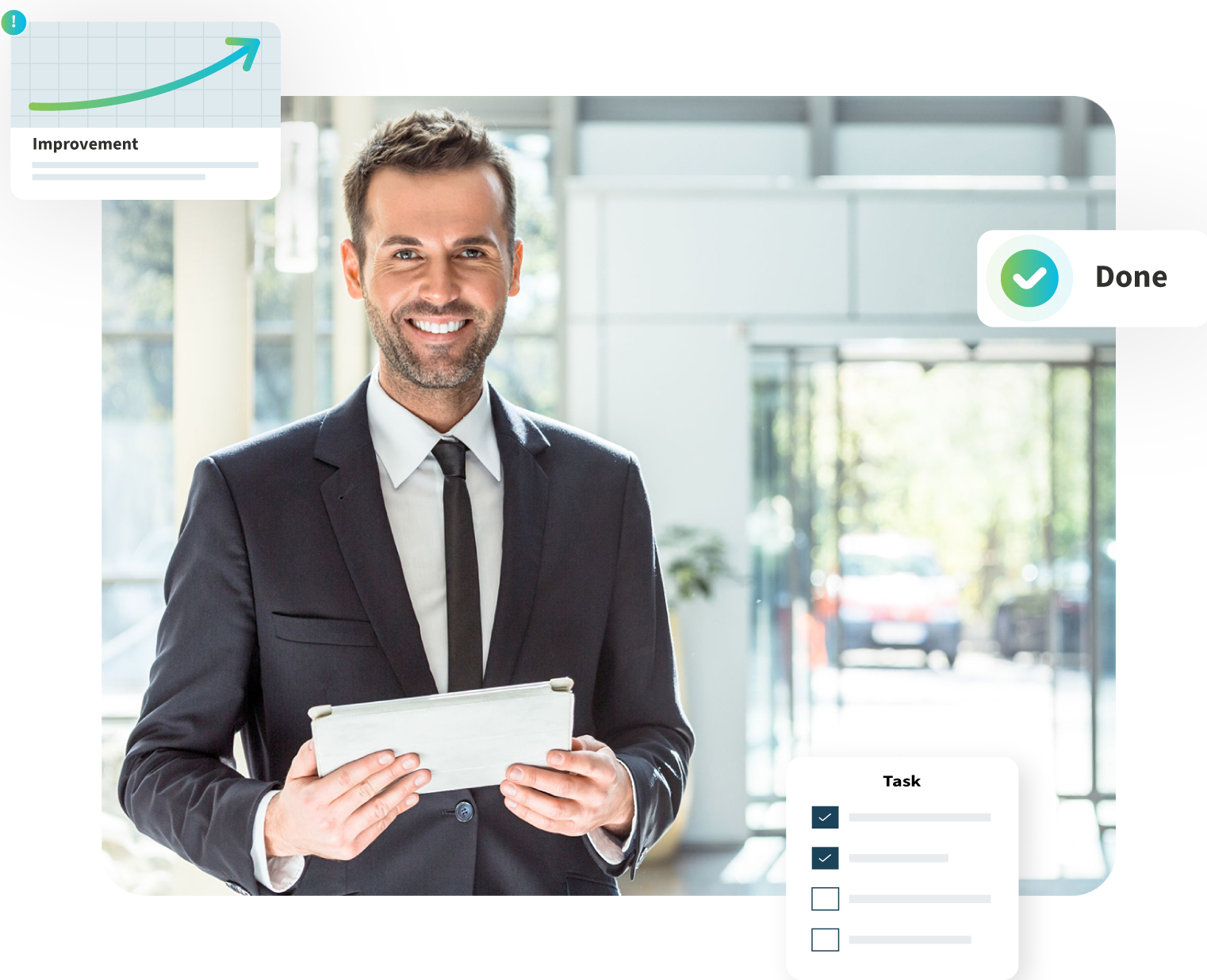The hospitality industry has a serious labor problem. From high turnover rates and burnout affecting employee productivity, it's clear that many businesses in the sector are struggling with effectively managing their workforce.
Hotel and restaurant businesses have been held back by outdated workplace practices that prevent them from attracting new staff or keeping current ones. To compete with other industries, today’s leaders need a workforce management strategy more aligned with employee needs in the modern day.
Giving Your Employees a Voice
Today’s employees are looking for a greater sense of involvement and the ability to influence business decisions. They want to know that their opinions matter and that their input contributes to an employer’s success. Hospitality-based businesses only stand to benefit by providing each staff member with a voice about how operations and strategies should evolve. Engaged workforces experience a decrease in turnover rates by as much as 59 percent.
Hoteliers need to do more than just take care of their guests. They have a responsibility to their employees and the overall well-being of the property. Employee engagement efforts are often stalled due in part from being overworked or lacking time to create surveys that will provide feedback about what they want improved with regards to employee and guest experiences as well as insight into improved operational workflows.
Tipping the scale in a manager’s favor are newer technologies that can fully automate engagement survey processes. Instead of having to start from scratch, managers can select from a list of pre-populated questions depending on what information they’re looking for. To streamline and reduce the time taken to analyze results, managers can even use advanced AI to automatically identify patterns and trends in employee responses. From inefficient workflows to customer experience recommendations, engagement surveys sent out regularly offer essential insight into how a business should adapt to stay in line with guest and employee needs.
Bringing an End to the Rising Prevalence of Employee Burnout
One type of employee feedback that many businesses are encountering is the drastic rise in burnout that is leading to the creation of toxic work environments. As many as 82 percent of hospitality employees say that they are experiencing burnout. Another 42.9 percent state that they plan to cope with the issue by searching for another job.
Attempting to hire more employees amid widespread worker shortages is not an option, so what is left to provide current staff with some much needed support? The answer lies in optimizing work schedules and making task completion processes much more efficient.
Robust workforce management platforms can now automatically create schedules that guarantee heightened employee productivity and operational efficiency. Using performance data to predict upcoming demand volumes, such systems can provide invaluable insight into how many employees are required to maintain high service quality levels not just by the day, but by the hour. For overwhelmed employees, relying on more support during busy periods can mean all the difference in realistically living up to business expectations.
With task management, an employee’s need to perform responsibilities quickly and effectively has been jeopardized by worker shortages that have also led to increased burnout. Businesses need to turn to modern task management technologies proven to eliminate inefficiencies standing in the way of timely task completion. For example, a mobile-based task management platform sidesteps the need for employees to repeatedly visit the back office to receive new assignments or provide task status updates. Modern task management solutions can also open a direct line of instant team communication. By just glancing at their device, each employee knows precisely who has been assigned what—preventing tasks from either slipping through the cracks or being repeated by other staff.
Task management solutions also ensure that managers know who is available during a shift and who they can assign tasks to. They can monitor and adjust the number of responsibilities throughout the day, keeping a fair and realistic workload for each team member.
Addressing Growing Staff Demands for Flexibility
Gone are the days when employees accepted inflexible 9 to 5 schedules or access to pay on a preset basis. To attract employees, hospitality businesses need to recognize that today’s workers expect employers to respect their responsibilities outside of work. Topping the list are demands for schedule flexibility. 43 percent of new hires who quit after the first 90 days listed schedule inflexibility as one of the top two reasons behind their sudden resignation.
Faced with a resurgence in business following the pandemic, many hospitality professionals no doubt view adopting a flexible schedule strategy as incompatible with meeting business and guest needs. However, the same workforce management technologies that can staff according to demand can also lend a hand in adopting flexible schedules. Without risking service quality or productivity, employees can select their own shifts based on projected service levels—all without the need for managerial involvement.
Pay flexibility has also become a hot issue for frontline hospitality workers. Many continue struggling to keep up with paying bills and ultimately spiral into debt. Hospitality industry leaders now have an effective answer to this issue by providing employees with access to wages when they need it most. By adopting instant pay technology, hospitality businesses can provide access to up to 50 percent of a worker’s wages the moment a shift has been completed. For an industry heavily reliant on tips to pay staff, this also includes providing automatic and accurate access to tips an employee may be owed. Sidestepping countless hours of performing math that would otherwise fall to managers, an automated system can show how many hours an employee has worked and which department areas they served to disperse tips accordingly.
Flexible pay and tipping platforms further provide an effective response to the decline in tips as more guests decide to travel without cash. Using such technologies, businesses can align tipping processes with the preference to pay digitally by providing customers with the means to leave tips via mobile devices. With just the scanning of a QR code, customers can automatically be taken to a secure payment site where they can enter the amount they wish to tip. They can even select which department they would like to tip, ensuring that the right staff are rewarded for their efforts. As more customers carry less cash, digitized tipping platforms are set to become critical tools that will maintain livable employee wages without resulting in a drain on business revenues.
Closing the Workforce Management Gap
The hospitality industry has traditionally lagged behind other industries in technology adoption and adapting to new market trends. But when attracting and keeping productive staff members is on the line, industry businesses have little choice but to adjust strategies if they wish to finally bring an end to ongoing employee shortages. With the tools now readily available, hoteliers can be viewed as the employer of choice—closing the competitive gap with other industries and ensuring that business performance can always live up to guest expectations.






